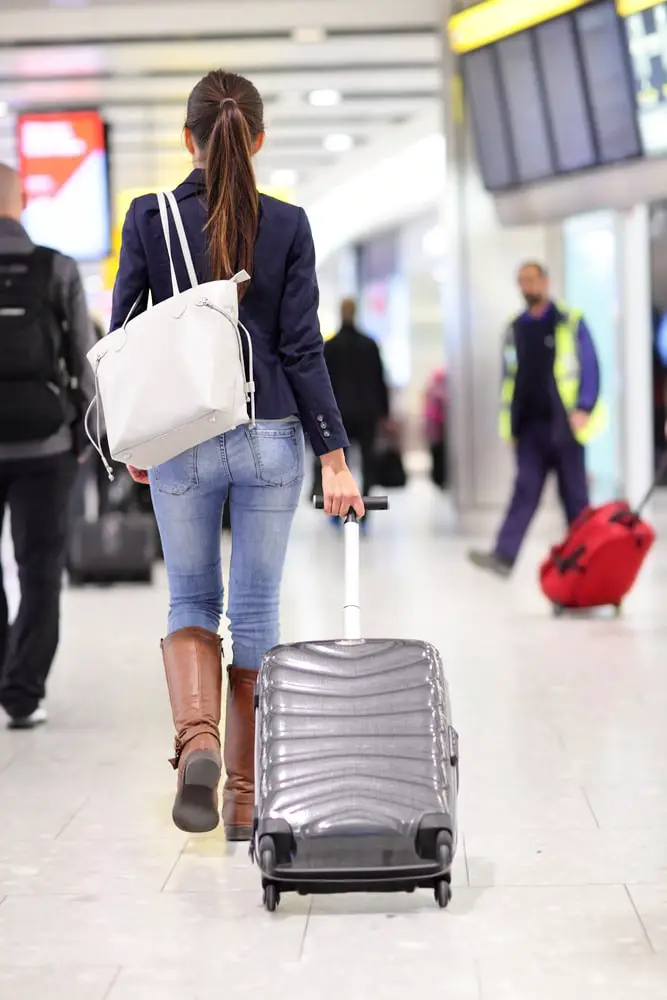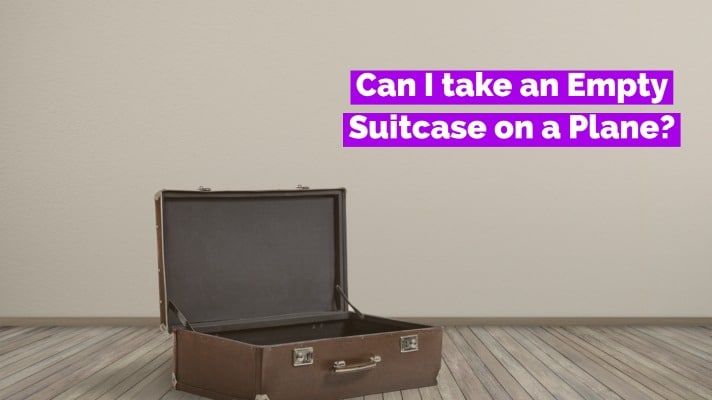Many airline passengers want to travel with an empty suitcase especially if they are planning on buying lots of souvenirs, clothes shopping, or even dropping off items to family/friends that you don’t intend to take home. However, it’s fairly unknown what the rules of taking empty luggage on planes are.
For the majority of airlines, there are no particular restrictions for traveling with an empty suitcase. The main cause for concern is that it could raise some suspicion.
Airport staff may question how light weight the suitcase is and even search the case if they think it’s suspicious. Nonetheless, if the case passes security without issues, it is unlikely that an empty suitcase will be refused on the flight. Here is a recent comment from @AskTSA on empty suitcases:
In some ways, traveling with an empty suitcase could benefit the airline, as the decreased weight will use less fuel, and soft empty suitcases can create more luggage space. For airplanes, weight is an expense. Whilst there are maximum weight restrictions for luggage, there are no stated minimum restrictions.
In terms of an empty suitcase navigating through an airport, and getting back to you – the weight of an empty (large) suitcase is already around 9 pounds. So if there are any weight mechanisms through the luggage belt, the suitcase will still be detected.
If you are worried that an empty suitcase will not be returned to you or seen as ‘lost’, simply fill it with a couple of t-shirts to avoid the problem.
For those who are particularly concerned about traveling with an empty suitcase, a suggestion would be to put disposable items inside to weigh it down, such as newspapers. Alternatively, you can call the airline ahead and inform them of your situation.
Remember, when traveling with an empty suitcase, make sure the case is sturdy enough to survive the journey. Some soft suitcases or backpacks rely on the inner contents to give them resilience.
Related Article: What is the Best Way to Weigh Luggage?
Do Airlines Charge for Empty Suitcases?

Most airlines will offer one free hand luggage item, within a certain size and weight. For any additional luggage you plan to take with you, there will be a fee.
Unfortunately, the fact that a case is light will not make it free. Although airlines do base the price of hold luggage on weight, extra cases take up extra space. Depending on the airline, the fee will differ.
For example, if you’re traveling by Easyjet, the cost of hold baggage under 15kg will vary between £6.99, and £35.49. So if your case is empty, you’d be paying at the lower end of the scale.
For Emirates, the first hold baggage weight starts at 23kg. Prices for this airline will vary depending on your route – how you’re flying, and where to/from. Generally, the prices vary between $15 and $50.
Lastly, for American Airlines, any piece of checked luggage is a fee of $30. A second piece is $40, and a third is $150. However, this airline does offer different regulations for exceptional baggage, and allows some items for free.
Can you Travel with One Suitcase Inside of Another?
Again, there are no restrictions on packing one suitcase inside of another when traveling. As long as one suitcase is smaller, and fits without issues. Plus, the suitcases must not exceed the maximum weight limit. However, airlines are fairly used to agents or holiday goers packing like this.
Packing a suitcase inside of a suitcase is particularly common when going to popular shopping areas, such as Paris, New York, and Milan. It’s beneficial if you’re planning on purchasing a large amount when you’re over there.
Bear in mind, that if you intend to fill up these suitcases during your trip, they may no longer fit inside one another, or may exceed the weight limit on your return journey. For this reason, you would need to check in the bags and pay for them separately.
Related Article: Can You Bring an Empty Water Bottle on a Plane?
Final Thoughts
Airlines will not generally have an issue with you checking in an empty suitcase, although it may raise some eyebrows with staff. Despite the fact that the case is lightweight, you will still need to pay an extra baggage fee. The fee will depend on the airline and the route.
Passengers often travel with an empty suitcase, therefore airlines are accustomed to it. If you are particularly concerned, call up the airline you’re flying with ahead of time to inform them.

